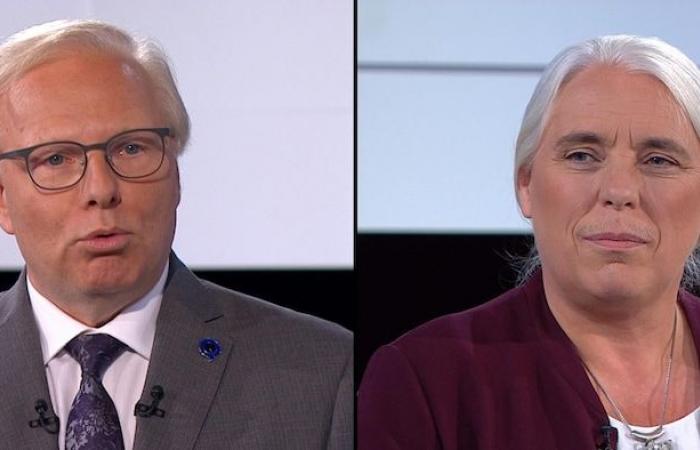The image has been the subject of mockery even within the ranks of the party for several years. On the Wikipedia page dedicated to Québec solidaire (QS) appears what is presented as the organization chart of the political party. The illustration isn’t entirely accurate, but it gives a good idea of how things work internally.
The structures are multiple and the links between them are difficult to grasp, they are so sinuous. At the moment, there must be around thirty people who really understand how Québec solidaire works.
confides a person well versed in what we call, in the jargon, the statuses
.
When these rules were drafted, the idea was to establish collegial democracy. Above all, we wanted to prevent a small group of people from exercising undue influence over party affairs. To achieve this, we were inspired in particular by the ways of doing things by union centers.
Eighteen years after the founding of QSHowever, we note that these methods have their limits. The problem is that we cannot have the same expectations towards volunteer activists as towards union delegates who are on union leave. There, we ask a lot of our volunteers
we say backstage.
A real leadership campaign
First change that will be proposed to activists at the end of the week: transform the races for co-spokesperson positions. Last year, the race between Émilise Lessard-Therrien and Christine Labrie and Ruba Ghazal did not produce the expected results.
Open in full screen mode
Christine Labrie, Émilise Lessard-Therrien and Ruba Ghazal were candidates for the position of female co-spokesperson last year. (Archive photo)
Photo: The Canadian Press / Jacques Boissinot
Since only delegates chosen to participate in the convention had the right to vote, there was no incentive for candidates to collect donations or recruit new members. The race had also generated very little interest in the media.
If the proposal on the table is accepted, we will transform the race for these positions into a real leadership campaign. We will also implement universal suffrage, so as to increase the influence of members and strengthen the legitimacy of spokespersons.
The leader would be one of the co-spokespersons
While there is no question of renouncing the current system of female and male co-spokespersons, it is nevertheless proposed to make one of them the leader of the party within the meaning of the electoral law.
In a sequence that went down in history, during the 2018 leaders’ debate, Jean-François Lisée – then head of the Parti Québécois – accused Québec solidaire of hiding its true leader. The position was then occupied by the party secretary, an activist that no one knew.
At the time, QS had ridiculed the attack, seeing it as an attempted diversion. Six years later, however, we admit that the blow has struck. We want to get rid of everything that seems hidden, everything that is “there is someone pulling the strings from behind”.
The co-spokespersons will essentially retain the same role, but this change will allow the party to comply with the Chief Electoral Officer’s requirements for holding leadership campaigns.
And the politburo
?
The party also offers an innovation: being able to ask questions directly to members, like a referendum. The results obtained during these consultations would have the same value as a resolution adopted in Congress.
We also want to review the functioning of the national council to make it more flexible, transform regional associations to reduce the number of decision-making levels and merge thematic commissions with activist networks. Adding all these changes together would have the effect of increasing the power of the members.
The idea is to bring decisions closer to activists. Let us stop believing that it is only the people who sit on the bodies or on the coordinating committee who can have influence.
The coordinating committee? It is this famous committee that Jean-François Lisée had once renamed the politburo
referring to the entity that led the Communist Party in the Soviet Union. The former PQ leader accused this committee of having undermined the efforts of sovereignist forces to converge, even though party representatives had endorsed the approach.
Open in full screen mode
Jean-François Lisée questioned Manon Massé on the identity of the true leader of Québec solidaire during the leaders’ debate in 2018. The previous year, he had declared that the party was controlled by a “politburo”. (Archive photo)
Photo : TVA
Internally, members of Québec solidaire sometimes continue to use the word ironically. The proposed reform would not abolish this committee, but would ensure that decisions that currently fall to it could be made differently, either by the national council, or even directly by the members.
Optimization and reduction
By making calls to people involved in the discussions, we find that words like relief
, optimisation
and their various synonyms often come up to describe the proposed changes – words that we associate more spontaneously with ministers of the Coalition Avenir Québec (CAQ), in search of savings to reduce the budget deficit, than with members of QS.
Nevertheless, At the moment, the authorities are eating up a lot of resources and energy, which could be put into financing or into field work.
says a long-time activist.
By abolishing structures and simplifying certain processes, we hope above all to stimulate the participation of members and attract new ones. Members are tired of their ideas not succeeding. Each piece of decision must be validated by different committees and as often it is not the same people who sit on the different committees, it quickly becomes very complex.
argues one of our sources.
Last spring, Gabriel Nadeau-Dubois noted that the current structure of his political party partly explained its inability to grow. We remain a party of members, democratic, but we need to spend less time in meetings and more time on the ground. We also need to evolve in our internal structure, to be closer to people.
he explained in an interview with Duty.
In the ranks of the party, however, some are wary of the proposed changes and fear a weakening of internal democracy. To be adopted, the new statutes must be approved by two-thirds of the delegates who will participate in the weekend’s conference.







